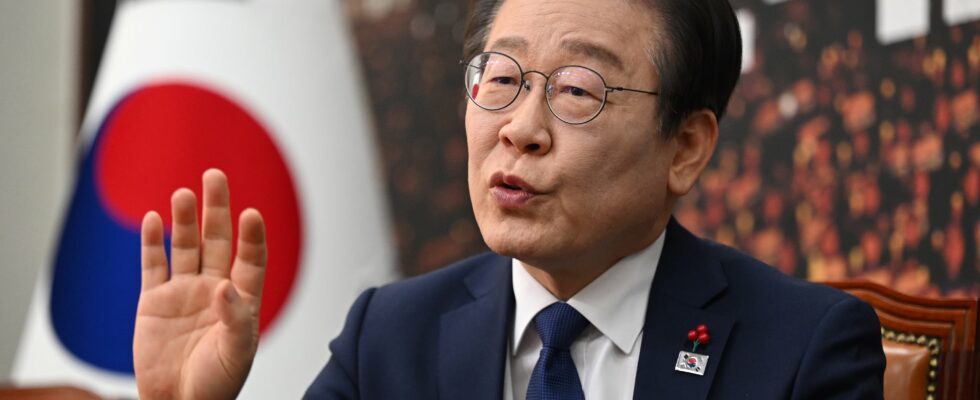South Korea’s Parliament on Saturday (December 14) impeached President Yoon Suk-yeol, who paid for his failed attempt to impose martial law 11 days earlier. A look at what now awaits this young democracy, in the midst of political chaos.
Who runs the country?
Prime Minister Han Duck-soo inherited the interim presidency and will be able to govern for up to eight months, with the Constitutional Court having 180 days to rule on the validity of the president’s impeachment, with a new election ahead, if confirmed. , be organized in the following two months. In his first statement as temporary leader, Han Duck-soo, 75, promised to do everything possible to “ensure stable governance.”
How long can the validation of the impeachment take?
The impeachment motion against Yoon Suk-yeol was passed by Parliament with 204 votes in favor and 85 against. The Constitutional Court now has six months to validate it or not. The last time such an impeachment was voted on, the Court handed down its judgment 92 days after the vote of the deputies, ratifying in 2017 the dismissal of former President Park Geun-hye, who fell for corruption. If the Court does the same for Yoon Suk-yeol, a presidential election must be held within 60 days. The winner would take office the following day, without the usual transition period.
This Sunday, the opposition leader called on the Constitutional Court to quickly seal the fate of the deposed president, in order to “limit the national unrest and alleviate the suffering of the population”. The president of the Constitutional Court, Moon Hyung-bae, promised on Saturday evening “a rapid and fair procedure”. He summoned the other judges for a first meeting on this case Monday morning.
The court normally has nine judges but three retired in October and have not been replaced. As six votes are required to validate an impeachment, a unanimous decision will be necessary to dismiss Yoon Suk-yeol. According to experts, this outcome is “very likely”, given that the deposed president was guilty of clear violations of the Constitution by proclaiming martial law. It is obvious that the president “tried to paralyze state functions […] “even the most conservative academics recognized that this had caused a crisis in the constitutional order,” Kim Hyun-jung, a researcher at the Institute of Law at Korea University, told AFP. On Saturday, the president deposed refused to appear in court.
Will the protests continue?
It’s quite possible, analysts say. “Those who are for Yoon Suk-yeol’s departure will probably gather in Gwanghwamun Square, near the Constitutional Court,” to put pressure on him, says Bae Kang-hoon of the political think tank Valid.
Protesters from both camps told AFP that they would return to the streets until the Court’s decision. “I will definitely demonstrate in front of the court to demand that it reject the impeachment,” assured Cho Hee-sun, who took part in a pro-Yoon rally on Saturday before the Parliament vote. Kim Cho-rong, in favor of impeachment, said she would continue to mobilize “in the coming weeks to make (her) voice heard by the judges.”
Who is the favorite in the event of an election?
In the ranks of Yoon Suk-yeol’s People Power Party (PPP), party leader Han Dong-hoon and Seoul Mayor Oh Se-hoon seem to stand out. But it is the leader of the opposition, Lee Jae-myung, who is seen as the big favorite by specialists. “Lee showed strong leadership during the days of unrest since the declaration of martial law and played a key role in passing the impeachment motion,” said lawyer and political columnist Yoo Jung-hoon. . According to a poll released last week, more than 52% of voters see Lee Jae-myung as the best candidate, with the others falling far behind, below 10%.
Of working-class background, having left school young to help his family, Lee Jae-myung experienced a meteoric rise in social status until becoming a political star. He came close to death last January, after being stabbed in the neck in a street in Busan (South) by an individual who posed as one of his supporters. In the 2022 presidential election, he lost to Yoon Suk-yeol, by the narrowest margin in South Korean history. The opposition leader is, however, at the heart of several scandals. In November, a court found him guilty of violating election laws but the verdict was stayed. If convicted, he would be declared ineligible for the presidency. Nevertheless, Lee Jae-myung “remains far ahead” of his potential competitors, thinks Yoo Jung-hoon, recalling that the proceedings against him would also be interrupted if he won the election, due to presidential immunity.
